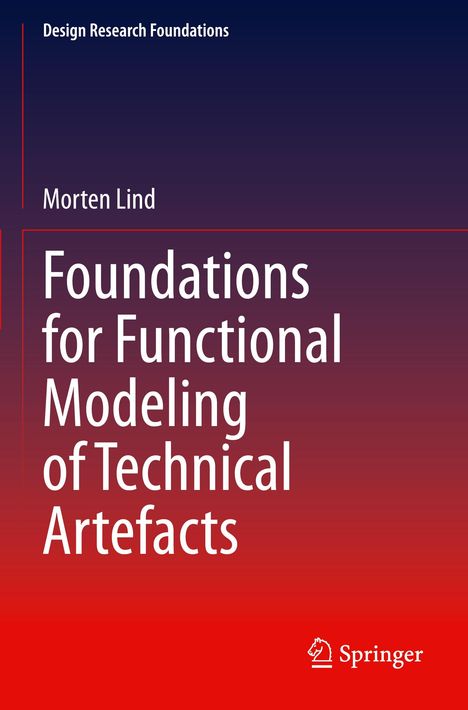Morten Lind: Foundations for Functional Modeling of Technical Artefacts, Kartoniert / Broschiert
Foundations for Functional Modeling of Technical Artefacts
(soweit verfügbar beim Lieferanten)
- Verlag:
- Springer International Publishing, 12/2024
- Einband:
- Kartoniert / Broschiert
- Sprache:
- Englisch
- ISBN-13:
- 9783031459207
- Artikelnummer:
- 12137822
- Umfang:
- 348 Seiten
- Gewicht:
- 528 g
- Maße:
- 235 x 155 mm
- Stärke:
- 19 mm
- Erscheinungstermin:
- 14.12.2024
- Hinweis
-
Achtung: Artikel ist nicht in deutscher Sprache!
Weitere Ausgaben von Foundations for Functional Modeling of Technical Artefacts |
Preis |
|---|
Klappentext
This monograph provides a new framework for modelling goals and functions of control systems. It demonstrates how to use means-end concepts and various aspects of action to describe the relations between the structure, dispositions, functions, and goals of technical systems and with human action.
The author developed this approach as part of his research on Multilevel Flow Modelling (MFM). He based the framework on concepts of action and means-end analysis drawing on existing theories from several areas of study, including philosophical logic, semiotics, and phenomenological approaches to social science. Here, he applies it to three modeling situations related to the interaction of technical artefacts and humans. One involves the relation between designer and artefact, another the relation between technical artefact and its user, and the third the relation between a natural object and its user. All three are relevant for modelling complex automated processes interacting with human operators.
The book also discusses challenges when applying the foundations for modelling of technical artefacts. Overall, it provides a cross disciplinary integration of several fields of knowledge. These disciplines include intelligent process control, human machine interaction, and process and automation design. As a result, researchers and graduate students in computer science, engineering, and philosophy of technology will find it a valuable resource.


